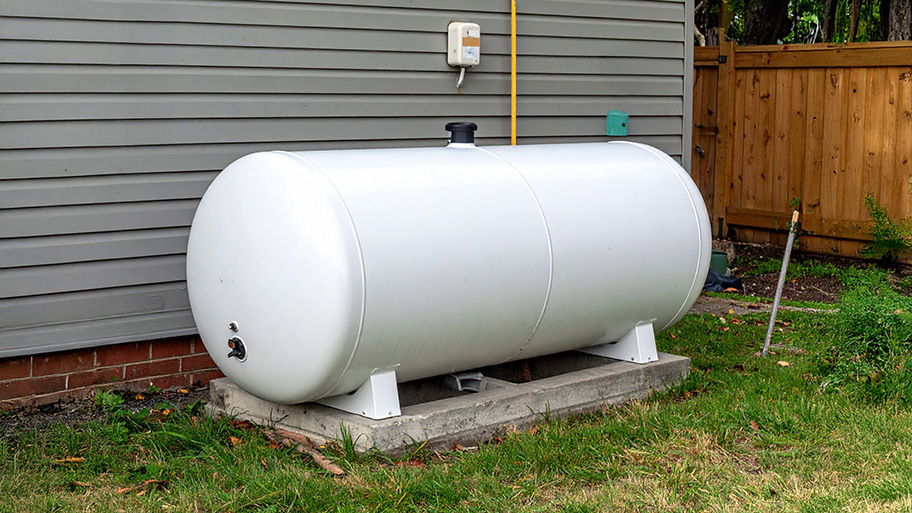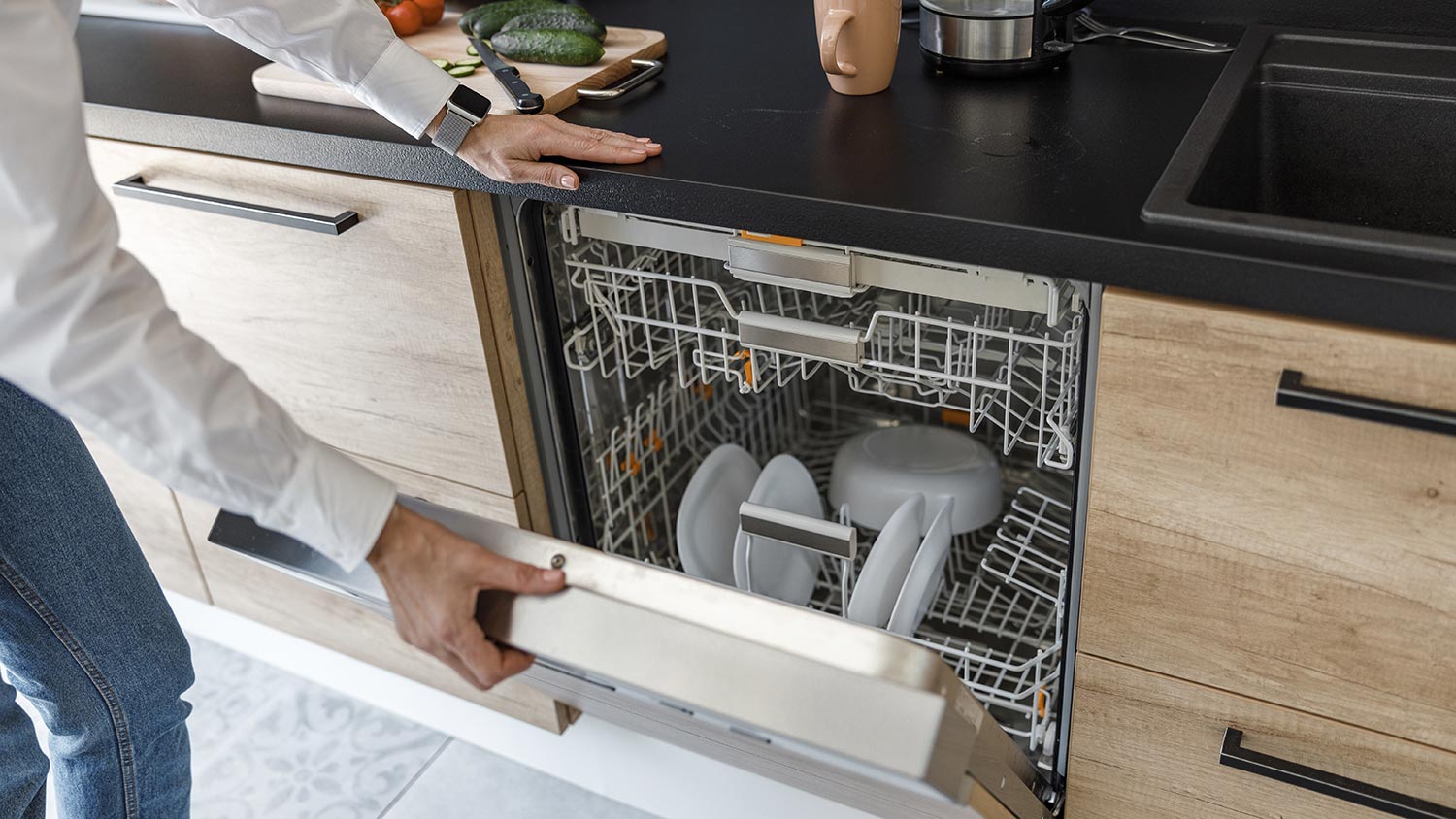
The average propane tank costs between $600 and $2,500, depending on the size, location, and more. Our expert guide explores all the factors.
Catch costly plumbing problems early with regular inspections


Home plumbing inspections cost around $200.
Plumbers will check exterior and interior plumbing.
The plumber will perform a visual inspection, camera inspection, or both.
Plumbing inspections can catch problems early, saving you money.
You may be thinking of getting a plumbing inspection for many reasons. Maybe it's been a couple of years, and you just want to ensure everything is okay because you like preventing problems before they arise. Or you're thinking of purchasing property and want to make sure you're not getting a lemon by getting a plumbing inspection before buying a home. Or perhaps you've been hearing dripping somewhere and are worried your bathroom plumbing needs repair.
Either way, a plumbing inspection is a low-cost way to put your mind at ease—or at least spot a problem that needs dealing with before it becomes bigger and more expensive down the road. This guide breaks down what to expect during a plumbing inspection and which parts of your home a plumber will check out.
The purpose of a plumbing inspection is to check all of the pipes in your house to make sure they're in good repair. That applies to both interior plumbing as well as to exterior drainage systems.
During the inspection, a licensed plumber will check your toilets, sewage lines, water supply, pipe condition, water heater, and so on. They're looking for signs of corrosion, leaks, and general poor condition that could result in problems later on.
A plumber may use a couple of tricks to check for problems with your plumbing. Visual inspections can spy cracks or leaks on easily accessible parts of the plumbing system, like exterior pipes, while video equipment is helpful for looking into pipes or water lines.
Plumbers will walk through your home, taking a closer look at pipes, faucets, water valves, caulking, and other elements to look for any damage. They can spot cracks, gaps, warping, leaks, condensation, mold, or other issues around the home.
It’s not easy to look into a dark pipe or down a drain and see any buildup or other damage, so plumbers use high-definition cameras to get a better look at these parts of the plumbing. If the plumber is doing a general inspection, they will likely use visual and camera inspections for a thorough plumbing checkup.
Plumbing is essential for the health and safety of your household. It makes sense that homeowners like to conduct checkups to make sure that everything is working correctly. Here's a look at two situations where you'll never regret a plumbing inspection.
If possible, have your plumbing inspected once a year. Plumbing inspections protect your home from costly and dangerous plumbing accidents. Minor clogs, leaks, and pipe damage hiding in your walls today could erupt without warning down the road. When that happens, you could be dealing with flooding, water damage, and mold or mildew risks that need to be addressed immediately, and will pay for the cost of an emergency plumber, which can be much more expensive. Weekend or after-hours calls can be substantially more costly compared to routine plumbing work that is scheduled after an inspection unveils something that needs attention.
While homeowners should consider scheduling routine plumbing inspections with qualified plumbers as part of household upkeep, plumbing inspections should never be skipped when it comes to buying or selling a home. For sellers, inspections keep you ahead of issues that will come up during a buyer inspection. Being able to show proof of a fully functional, recently inspected plumbing system can be a great selling point. For buyers, an inspection protects you against investing in a home with hidden plumbing issues.
A lot goes into the overall process, but a plumbing home inspection checklist generally involves the following steps.

The plumber will check to ensure that all proper permits and plans are in place according to city codes and ordinances.
The plumber will check your water heater to ensure it is in good working order and free of corrosion.
For gas water heaters, the plumber will inspect the gas supply line and look for soot. This is important to prevent carbon monoxide gas from leaking into the home. For electric water heaters, the plumber will make sure the wires are the correct sizes and don’t have any damage. You may need to hire an electrician if you suspect any electrical problems.
Whether for a tankless water heater or a tank heater with a tank, the plumber will check the water valves and connections on the unit. They may also check for any strange sounds coming from the unit and will confirm that the maximum temperature is set to prevent scalding.
Any exposed plumbing must be checked for cracks, misalignment, warping, or other visible damage. The plumber will also check that exposed pipes are insulated against freezing.
The plumber will run the water in your fixtures and check them for costly plumbing leaks. Some fixtures the plumber will check include:
Sink faucets
Tub and shower faucets
Showerheads
Outdoor water spigots
Toilets
They'll also inspect your caulking to ensure there are no issues that could lead to water damage.

The plumber will check the dishwasher to ensure it is in good working order, has an air gap, and is properly anchored to the countertop.
The plumber will examine hot and cold water piping to determine if they are properly insulated. Thus, your pipes won't freeze when temperatures drop. Frozen pipes lead to burst pipes, which is a major plumbing problem.
Some older homes have dangerous lead pipes that need replacing. A plumber will check your home to determine if you have these pipes.
The plumber will want to check inside pipes and drains for potential blockages or increased sediment buildup, but this isn’t easy to do with a visual inspection. The plumber can snake a high-definition camera or an endoscope into pipes or drains for a clearer and more detailed view.
Sump pumps are important for mitigating flooding, so they need regular inspections to ensure they work when needed. The plumber will check for visible damage or debris on or around the sump pump. They may also check that the electrical components are working properly.
| Location | Average Cost |
|---|---|
| Dallas, Texas | $225-$700 |
| Hartford, Connecticut | $250-$800 |
| Cleveland, Ohio | $300-$750 |
| Detroit, Michigan | $325-$800 |
| Salt Lake City, Utah | $350-$725 |
| San Diego, California | $350-$800 |
| Albuquerque, New Mexico | $200-$650 |
| Indianapolis, Indiana | $200-$700 |
| Mobile, Alabama | $200-$600 |
| New York, New York | $325-$825 |
| Pensacola, Florida | $195-$675 |
| San Francisco, California | $300-$825 |
| Salem, Oregon | $375-$725 |
| Annapolis, Maryland | $300-$750 |
That depends on what the plumber discovers during the inspection. Hopefully, all they'll recommend is another inspection in a couple of years.
Chances are, problems like leaks and clogs were known about before the inspection—and they may have even prompted the inspection. Plumbing issues that you may not have noticed are corrosion or some kind of damage to the pipes. In that case, they may recommend replacing the affected pipes.
You may not be aware of some leaks that are ticking time bombs for your house. For example, pipes may be leaking into the foundation rather than into your home, which could cause extensive damage if not corrected.
It's impossible to say what a plumbing inspector will recommend for your home. However, it's wise to get the inspection done regardless. You want to know these issues ahead of time, and you can always get a second opinion if you doubt the recommendation.
If you suspect that your house may have plumbing issues, or if you're thinking about purchasing a home and want to make sure everything is good internally, a plumbing inspection is a low-cost way to prevent huge bills in the future. Contact a plumber near you and schedule an inspection right away; you don’t want to wait when it comes to something as important as this.
The big day has come to schedule an inspection with a local plumber. The only problem is that you have no idea what to ask the plumber before you set a date for them to come to your home. Start with these need-to-know questions:
Is your company fully licensed and insured? It helps if you know how to check plumber is licensed.
What is included in a whole-house plumbing inspection? Will you be checking both interior and exterior fixtures?
Does your quote include a visual inspection, camera inspection, or a combination of the two?
Will you be able to switch out parts on the same day if you discover issues during the inspection?
Do you offer plumbing maintenance packages that can help me to save on inspections and plumber repair costs each year?
From average costs to expert advice, get all the answers you need to get your job done.

The average propane tank costs between $600 and $2,500, depending on the size, location, and more. Our expert guide explores all the factors.

Making updates to your home? You may need to move your gas line to fuel new appliances or meet code regulations. We’ll cover the cost of moving a gas line, plus project tips.

Under the sink, behind the tub, or through the walls—pipe replacement costs for small projects run the gamut. Here's what to know.

The water main line is essential to your home’s plumbing. Over time, it can develop wear or damage. Find out how much a main water line replacement costs here.

Learn how to remove a bathtub drain for cleaning or replacing, whether you’ve got a simple toe-touch stopper or a more complicated trip-level model.

You never know when learning how to unclog a toilet will come in handy. Get to know these eight methods for the next time things stop flowing.